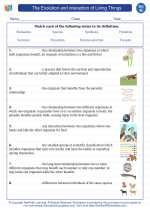Endoparasites
Endoparasites are organisms that live inside the body of another organism, known as the host. These parasites can be found in various animals, including humans, and can cause a range of health problems. Understanding endoparasites is important for understanding diseases and how to prevent and treat them.
Types of Endoparasites
There are several types of endoparasites, including:
- Protozoa: Single-celled organisms that can cause diseases such as malaria and toxoplasmosis.
- Helminths: Worm-like parasites that include roundworms, tapeworms, and flukes.
- Platyhelminthes: Flatworms that can be further categorized as trematodes (flukes) and cestodes (tapeworms).
Life Cycle of Endoparasites
Endoparasites have complex life cycles that often involve multiple hosts. For example, some parasites lay eggs or release larvae into the environment, where they are ingested by a new host. Once inside the host's body, the parasites mature and reproduce, continuing the cycle.
Effects on Hosts
Endoparasites can cause a variety of health issues in their hosts, including digestive problems, anemia, organ damage, and nutrient deficiencies. In severe cases, they can be fatal. Additionally, some parasites can manipulate the behavior of their hosts to increase their own chances of survival and reproduction.
Prevention and Treatment
Preventing endoparasitic infections involves measures such as good hygiene, avoiding contaminated food and water, and controlling the populations of intermediate hosts. Treatment typically involves the use of antiparasitic medications, which can vary depending on the specific parasite involved.
Study Guide
When studying endoparasites, it's important to focus on the following key points:
- The different types of endoparasites and examples of diseases they cause.
- Understanding the life cycles of common endoparasites and the role of intermediate hosts.
- The effects of endoparasites on the health of their hosts and potential complications.
- Methods of prevention and treatment for endoparasitic infections.
Additionally, familiarize yourself with specific examples of endoparasites and their impact on human and animal health.
.◂Science Worksheets and Study Guides Eighth Grade. The Evolution and interaction of Living Things

 Worksheet/Answer key
Worksheet/Answer key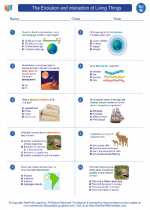
 Worksheet/Answer key
Worksheet/Answer key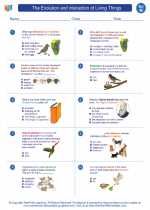
 Worksheet/Answer key
Worksheet/Answer key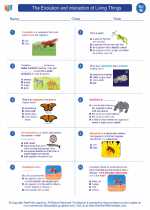
 Vocabulary/Answer key
Vocabulary/Answer key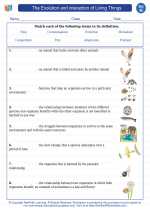
 Vocabulary/Answer key
Vocabulary/Answer key